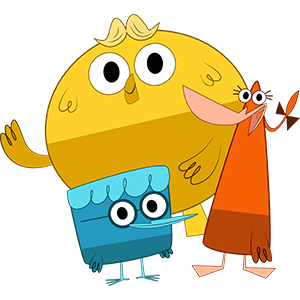For generations, parents have been trying to figure out the best way to raise their kids. Some follow parenting techniques that their parents adopted, while some depend on parenting books. And there are those who try to come up with their own parenting styles that they keep amending along the way, depending on what’s working and what’s not. In the end, all parents want their kids to grow up to be kind, strong, and confident adults who can make their way into the world.
Lately, many parents are adopting the parenting style of gentle parenting. What is gentle parenting? Simply put, it’s a style that focuses on disciplining the child through willingness and understanding, instead of rules and force. Multiple gentle parenting websites will help you navigate these gentle parenting techniques. Now, many would say you spare the rod and spoil the child, but studies have shown that strict parenting often leaves the child scared and, eventually, distant. They grow up to be indifferent and emotionally weak. Many adults walk around with mental scars and are unable to open up about them to anyone. Read on for some gentle parenting tips.
Gentle parenting has risen to be the better parenting technique when it comes to raising self-confident and compassionate children. The three underlying aspects of gentle parenting are understanding, empathy and respect. Instead of telling them that they should respect you, you should respect them first, which will, in turn, lead them to respect you. In mainstream parenting, the child is often asked to do what’s told, but in gentle parenting, whenever the parent sees fit, the child’s wishes are acknowledged. For example, if the parent asks the child to finish playing and go take a shower, and the child says they are building something and would like to take a shower after 15 minutes, the parent can accept it. This way, the child will know that their wishes are being respected and they have a certain degree of control over their lives. It will lead to the child being respectful and grateful. However, there can be a few problems with gentle parenting. If you feel that the child is taking advantage of the understanding and respect, you could be a little sterner with them. Whether you follow mainstream or gentle parenting, boundaries have to always be respected.
With gentle parenting, discipline is achieved steadily, with a lot of understanding and empathy. You mustn’t look at the child’s behavior as bad, but as a way for you to identify the unmet needs of the child. Maybe they are acting poorly because they feel neglected or are unaware that the behavior is unacceptable. Talk to them politely and with respect and help them understand why what they are doing is considered wrong. Without reason, if you tell them to stop a certain behavior, they will take longer to accept it because they don’t understand why it’s wrong. Always explain what you’re asking of them.
Another aspect you will find in gentle parenting books is to be practical with them. don’t praise them or reward them for good behavior. Because good behavior is actually normal behavior expected of decent human beings. If you keep rewarding them every time they are polite or respectful, they’ll expect acknowledgment or validation even later on in life. Normalize decent behavior.
Finally, gentle parenting focuses on understanding that every child is different. Don’t burden your child with your expectations. They all have different skills and competencies that will become evident and come to the surface with time. Don’t compare your kid to other kids. Give them their space and try not to suffocate them with too many of the dreams you have planned out for them. They will grow up to be their own person, and while you may not understand or like their dreams, you have to at least support them as long as they aren’t harming themselves or others. Whenever you’re wondering what is gentle parenting, you can always remember these gentle parenting quotes, “be mindful of your child’s feelings” and “each child has an individual speed of development, so make a conscious effort to respect their individuality”.


